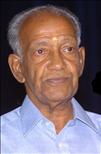 Hinduism, with its origins in the Indus valley, dating back to Mohenjo-Daro and Harappa or even earlier, spread its wings to neighbouring countries including Siam, Cambodia and Thailand.
Hinduism, with its origins in the Indus valley, dating back to Mohenjo-Daro and Harappa or even earlier, spread its wings to neighbouring countries including Siam, Cambodia and Thailand.
Even the first letter of the Tamil word, ‘AUM,’ found on the rock inscription at Manu Bay in New Zealand leads one to believe that the Hindu influence was present in the Pacific region, including Fiji.
It may be surprising and awe-inspiring to Hindu traditionalists to hear that Hindu philosophy and forms of worship have caught the hearts and minds of Argentinians in the far land of South America.
City of Wisdom
Ada Albrecht formed Hastinapura, the ‘City of Wisdom,’ in Argentina, 50 kms from Buenos Aires in 1981. She wrote many texts including ‘The Saints and Teachings of India’ and ‘The Teachings of Monks from the Himalayas.’
One of her earlier students, Gustavo Canzobre, well versed in Hindu philosophy, temple architecture and a company director is presently the Director of the Foundation.
The Foundation’s motto is “Faith in God and Service to Mankind.”
It is an educational institution, whose main objective is to spread faith and love of God, affirming the basic unity of all religions and the presence of God in the heart of all beings.
The Foundation aims to learn how to conquer the human heart through right action and through devotion. It encourages the spirit in man to help those in need and to give shape to the philosophy of service to fellow humans.
Its ideal is “Spiritual Universalism.”
The Foundation is located on a twelve-acre garden plot with a meditation hall and shrines for Hindu deities such as Ganesha, Shiva, Vishnu, Krishna, Saraswathi and Surya, not excluding Pandas of Mahabharata, in line with its name of Hastinapura.
The serene surroundings are noted for their cleanliness, greenery and filled with soft music of the devotees that inspires sacred thoughts and Holy Spirit.
On weekends, the area bustles with hundreds of population with an abundance of diverse professionals to preach and to reach the basics of Hindu philosophy, meditate, sing bajans and practise Yoga.
No favours rendered
None of them goes there to seek favours but only to seek wisdom.
There is no intermediary such as priests and the institution helps to pursue real wisdom, peace and divinity.
There is no money collected; vegetarianism is strictly observed, and food always shared with the poor children in the neighbourhood.
They are all humble and dedicated volunteers devoting their time and talent in pursuit of the divine and avoid publicity.
Hastinapura respects all the religions and beliefs.
Their temples include shrines for Buddha, Virgin Mary, Greek God Demeter and Temple of All Faiths. They celebrate Ganesh Chaturthi and Baisakhi.
Classes are held in yoga, meditation, philosophy, devotional singing and sacred drama.
Workshops and Seminars
Workshops and seminars are held in Spanish and retreats are regular.
The architectural and sculpting work of the Hastinapura complex was done entirely by Argentinians.
The architects and sculptors have studied Indian temples, have done their work professionally and aesthetically, and are continuing to build more with Indian sculptures and statues.
Among the noteworthy aspects of the Foundation are Schools of Philosophy (with Eastern and Western Metaphysics), Yoga, Meditation, Sacred Drama, Singing and Devotional Music.
They run a successful publishing house, which has published numerous books on Indian philosophy and translated the Bhagawat Gita, Bhakti Sutras, Upanishads, Shrimad Bhagwatam and Yoga Sutras.
The latest publication is the Mahabharata in Spanish. They have so far published three volumes, each running into five hundred pages and plan to do a total of twelve volumes in the coming years.
The authentic Ashram of Hastinapura has 16 Centres in Buenos Aires, three in other parts of Argentina and many more in Uruguay, Bolivia and Colombia.
It is surprising to find that at these centres conduct weekend classes for more than 2500 students on yoga and philosophy taught by more than 300 teachers.
V Sivasupramaniam is a former employee of Education Service in his native Sri Lanka. He has also worked in Nigeria and Seychelles. He is a freelance writer resident in Auckland.






